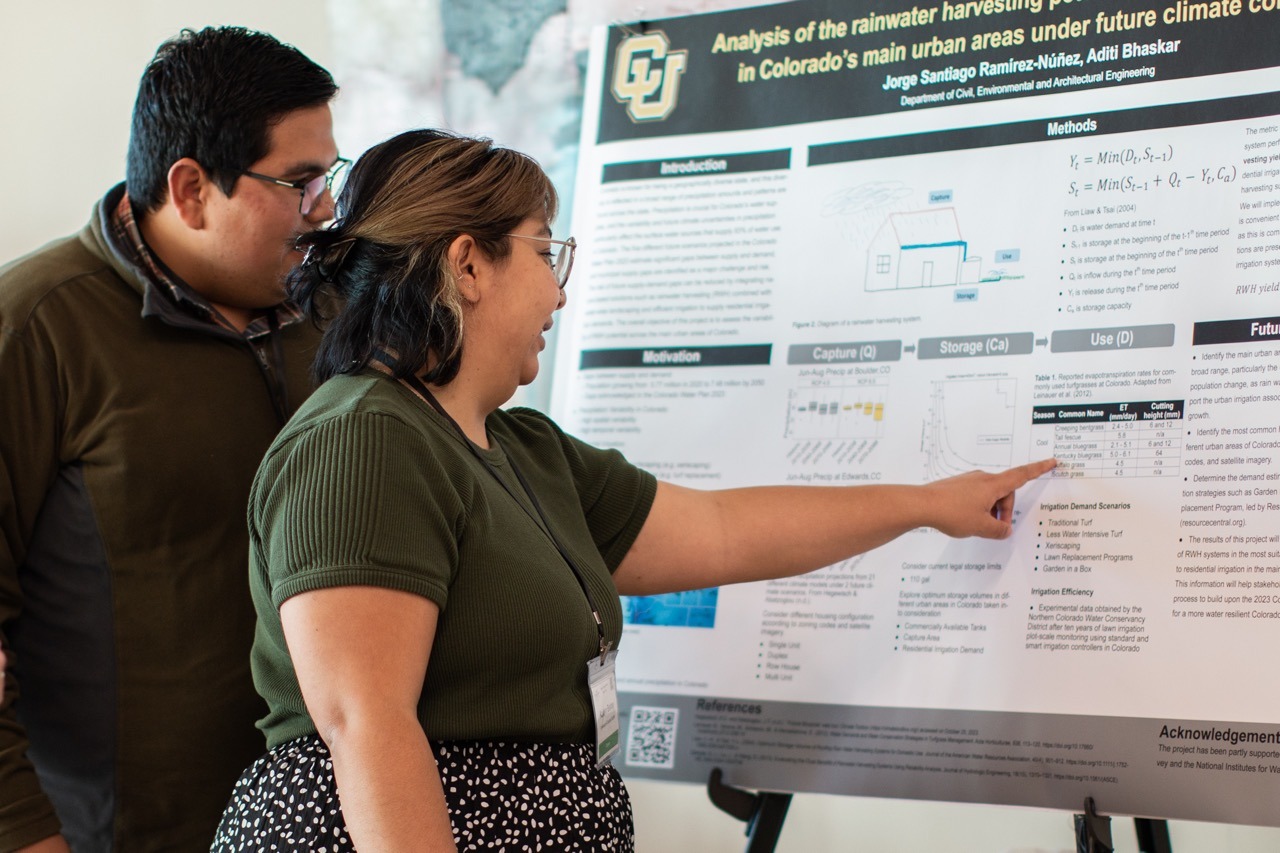A new generation of water scientists from CU Boulder and Colorado Mesa University join in Grand Junction to learn from experts and form lasting partnerships.
Grand Junction and Boulder sit on opposite sides of the Continental Divide. As far apart as these cities are, they’re brought together by a commitment to water conservation, as years of heavy drought dwindle the state’s water supply. Rooted in this shared commitment is Crossing the Divide: a program that fosters student collaboration across CU Boulder and Grand Junction’s Colorado Mesa University (CMU) at the Upper Colorado River Basin (UCRB) Water Forum. The forum, which was hosted at CMU from Oct. 30-31, brought together water “professionals, scholars and stakeholders” to “promote dialogue” and “address the water challenges facing the Upper Colorado River Basin,”as stated on the conference website.
“I saw a good opportunity to pair students with water professionals with everyone meeting at the conference in person,” said Joel Scholtes, a professor of Civil Engineering at CMU and head of the Crossing the Divide program. “The idea of this kind of mentorship program is to link students with professionals to utilize their experience and networks to lead (hopefully) to job opportunities and an expanded network.”
Jorge Santiago Ramírez, a PhD student at CU Boulder, was paired with Mitchell Dorsk, a hydrologist with HRS Water Consultants.
“Talking to Mitchell has given me another perspective on what water consulting in Colorado could look like,” said Ramírez. Ramírez, who hopes to work in water consulting after completing his PhD, said Dorsk helped him apply for internships and shared valuable knowledge about the field.

Jorge Santiago Ramírez (left) and Kaitlyn Bishay (right) examine Ramírez’s research poster at the 2023 Upper Colorado River Basin Water Forum.
Beyond connecting students with mentors at the UCRB Water Forum, there was a unique opportunity for CU Boulder students to understand how water challenges in Boulder differ from those in Grand Junction.
“As a person who works in urban hydrology, I think that most of the time, we only hear about what is happening on Colorado’s Front Range,” said Ramírez. At the UCRB Water Forum, Ramírez said he gained valuable insights about the water-related challenges facing the Western Slope, as well as some potential solutions.
Nicholas Guthro, a graduate student at CU Boulder who presented his research on water usage in arid regions at the UCRB Water Forum, said the most fulfilling part was helping CMU undergraduates interested in water issues feel more confident about pathways to continuing their research.
“A lot [of CMU undergraduates] seemed interested in graduate school and work but did not know where to start,” said Guthro. “I enjoyed giving them insight to what grad school is like and if it could be the correct fit for them.”
Scholtes said this was part of the program’s strategy. By connecting CU Boulder masters and PhD students with CMU undergraduates, the CMU students were not only “exposed to grad school as a career path,” but also, as majority environmental science majors, they learned more about different degree programs.
Crossing the Divide is funded in part by a CU Boulder Outreach Award from the Office for Outreach and Engagement. The funding facilitated CU Water Experts and students to attend, participate in and contribute to the UCRB Water Forum put on by the Water Center at CMU. It supports a Water Fellows mentoring program, and supported scholarships for the water user community to attend the UCRB Water Forum.